- California Assembly OKs highest minimum wage in nation
- S. Korea unveils first graphic cigarette warnings
- US joins with South Korea, Japan in bid to deter North Korea
- LPGA golfer Chun In-gee finally back in action
- S. Korea won’t be top seed in final World Cup qualification round
- US men’s soccer misses 2nd straight Olympics
- US back on track in qualifying with 4-0 win over Guatemala
- High-intensity workout injuries spawn cottage industry
- CDC expands range of Zika mosquitoes into parts of Northeast
- Who knew? ‘The Walking Dead’ is helping families connect
S. Korean students cycle across US to promote awareness of ‘comfort women’
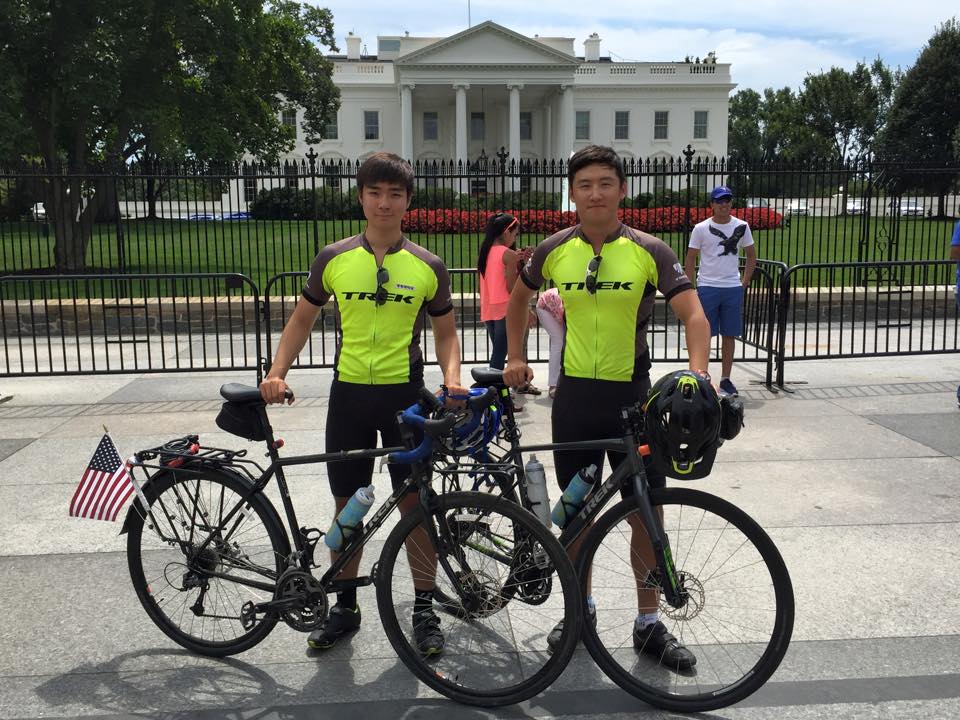
Shim Yong-seok, right, and Baek Deok-yeol stop in Washington D.C. during their bike ride across the U.S. (Facebook)
WASHINGTON (Yonhap) — So excited to see pavement after a day of cycling off road, Shim Yong-seok was speeding down an asphalt hill under California’s scorching sun in late June when he slipped on sand and fell. The impact was so powerful that even his helmet broke.
“I was traveling 25 miles (40 kilometers) per hour. What came to my mind at that moment was that everything was over,” Shim said. “All of my left leg was skinned, but even in the middle of pain, I also thought I should keep going no matter what.”
It was only the beginning of challenges that Shim, a 22-year-old South Korean university student, and his friend Baek Deok-yeol encountered in their two-month, 4,800-kilometer cycle ride from the west to the east coast across the U.S., aimed at raising awareness and support for “comfort women,” victims of Japan’s wartime sexual slavery.
About halfway through the journey, Shim was also taken to the hospital with a burn sustained when wind blew a portable pot and the boiling water in it on to his ankle as they tried to warm instant rice on a road side. They also had to stop a number of times to repair punctures to tires.
After departing from Los Angeles on June 27, the pair arrived in Washington DC last week and held a rally in front of the Japanese Embassy, demanding that Japanese Prime Minister Shinzo Abe apologize to and compensate sexual slavery victims.
“The Abe administration must fully admit Japan’s responsibility for the system of sexual slavery,” they said in a prepared statement while clad in bicycle jerseys in fluorescent colors. “Officially, legally and genuinely apologize for inflicting such brutal and egregious violence against women and children.”
Their ride, which took them through Nevada, New Mexico, Texas, Kansas, Missouri, Illinois, Pennsylvania and Virginia, is scheduled to end later this week in New York where they plan to hold rallies in front of the Japanese consulate and the U.N. headquarters.
Shim, a Chinese language major at Incheon National University in Incheon, west of Seoul, and Baek, a physical education major at Seoul’s Kyung Hee University, became friends when they fulfilled their mandatory military service duty at the same police unit guarding South Korea’s easternmost islets of Dokdo last year.
Both said they volunteered to serve in the Dokdo Guards in anger over Japan’s claims to the East Sea islets. The claims have long been among key thorns in relations between South Korea and its former colonial master Japan, along with the sexual slavery issue.
What interested them in the sexual slavery issue was a short animated film, “Herstory,” which tells the story of a girl who agreed to go work in Japan to save her father from prison on charges of rising up against Japanese colonial rule, but ended up in sexual slavery.
The film is based on the true story of late sexual slavery victim, Chung Seo-woon.
“After watching the animation, I wanted to visit the comfort women grandmothers and asked Deok-yeol to come with me,” Shim said of their first visit to the House of Sharing, a shelter for elderly sexual slavery victims.
Since then, they became more involved in the issue, including attending rallies that activists have held in front of the Japanese Embassy in Seoul every Wednesday since 1992 to urge Tokyo to resolve the grievances of victims with a sincere apology and compensation.
Shim said he’s action-oriented.
“If something comes to my mind, I just put that into action,” he said, adding that after watching a movie about the 1980 bloody crackdown on pro-democracy uprisings in the southern city of Gwangju, he traveled all the way to the city the following morning to visit a cemetery for victims.
The cycle ride across the U.S. was the combination of fulfilling something on Shim’s bucket list and the desire to let more people in the world know of the brutal violations of human rights that Japan inflicted on about 200,000 Asian women, mostly Koreans, during World War II.
South Korea has demanded Japan formally apologize and compensate victims, but Japan has refused to do so, saying all issues related to its 1910-45 colonial rule of the Korean Peninsula were settled when the two countries normalized relations in 1965.
Each day, the two traveled 90-100 kilometers from around 6-7 a.m. until around 6 p.m on their bicycles. They each carried two large bags containing clothes, first-aid kits and other necessities, a sleeping bag, printouts about the sexual slavery issue, and a banner displaying the title of their ride, “Triple A Project.”
The three “A’s” stand for their call for Japan to admit and apologize and their resolve to accompany victims.
At night, they slept mostly at low-cost inns, but when they were unable to find one, they slept in police and fire stations and churches. One night they spent at a fire station, the firefighters even threw them a barbecue party, they said.
“My goal was to get at least one person a day to learn of the comfort women issue,” Baek said. “I’ve worked steadily for the cause in the past two months and I am now proud of myself.”
Their goal was overachieved.
They met way more people than expected and helped raised their awareness of the sexual slavery issue. Their story was also published in a local newspaper in a city in Michigan. Their Facebook page (https://www.facebook.com/bikeforcomfortwomen) chronicles the journey with pictures.
In an effort to get people to think more about the sexual slavery issue, the two also asked people to make Facebook posts with short comments on the issue, together with pictures taken with them.
Shim said what has propped him up during the grueling journey was the promise they made with a sexual slavery victim living in a nursing home in Yongin, south of Seoul, that they will come back after completing the cross-U.S. ride.
“When we first visited her in winter, we were told that we should be careful because the grandmother could convulse if she sees young men due to the trauma of sexual slavery. But when she saw us, she held my hands tightly. It was so emotional,” Shim said.
“We went to see her before coming to the U.S. and promised her to come again after completing this,” he said. “If I think of her, I couldn’t give up.”







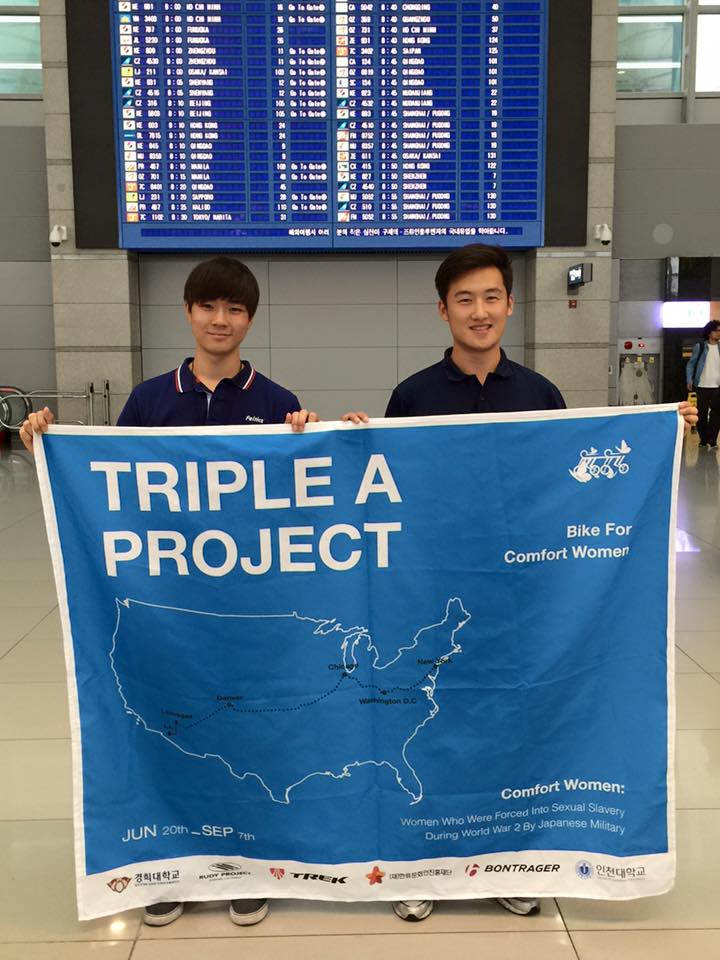
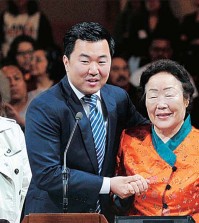
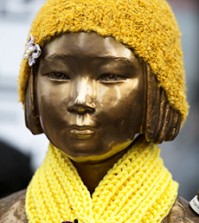
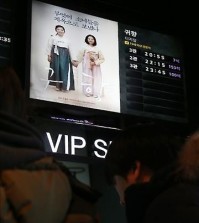
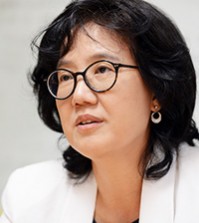





Chiu Kok-chiung
September 4, 2015 at 2:26 AM
Keep up the good work, boys!
Let the whole world remember Japan’s heinous crimes during WWII and its
colonial rule of Korea and Taiwan so that fewer nations will perpetrate
such shameful acts in future!
Pingback: Military Hospitals In South Korea | locate a hospital
Pingback: Military Hospitals In South Korea | same - day . abortion clinics
Pingback: Army Hospitals In Seoul Korea | plaza - locate a hospital
Pingback: How To Cook Korean Rice In A Pot | book - how to cook
Pingback: Where To Learn Japanese Archery In Los Angeles California | speak - online teachers
Pingback: At Least 100 Students Study Japanese Gmat | ebooks - learn spanish online
Pingback: Kyung Hee University Korean Language Course | The Guide to Language Development
Pingback: Learn Japanese Washington Dc | French